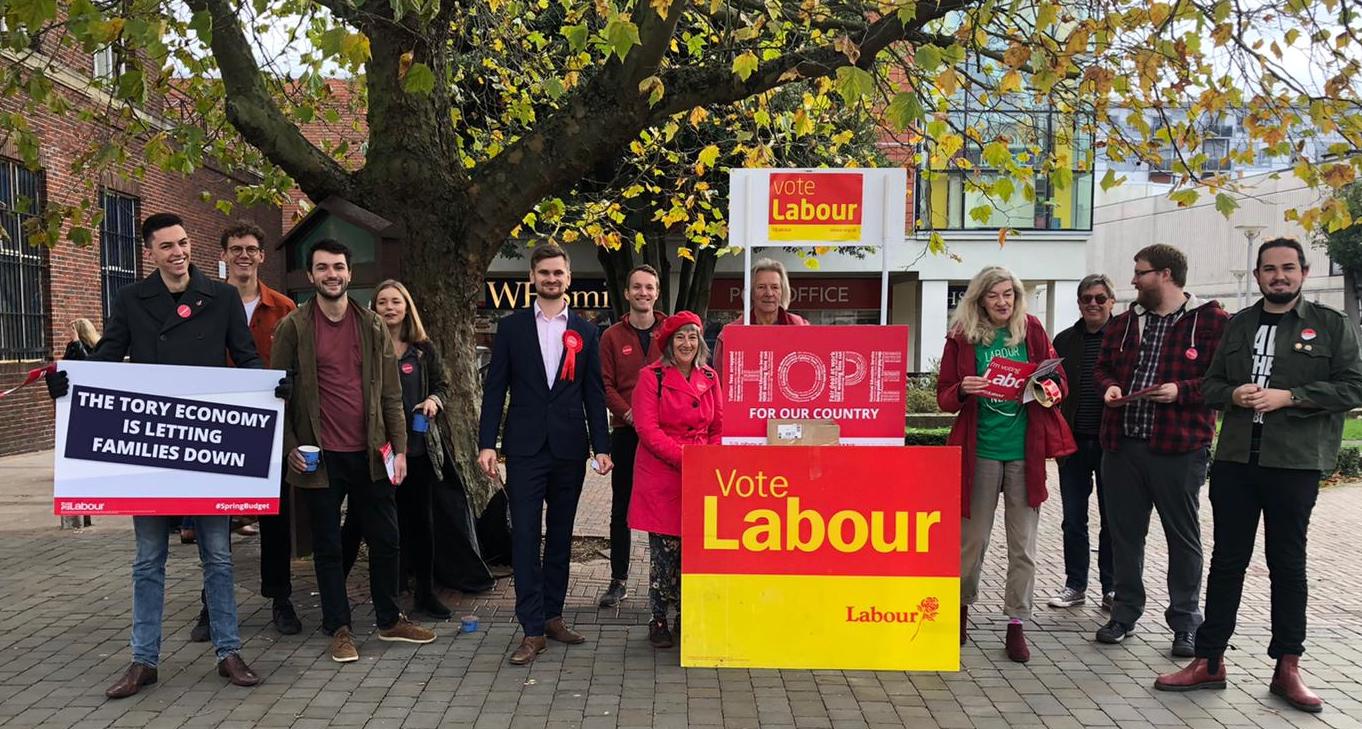The Only Way is Tory? Resisting the Inevitable in the Conservative Heartlands of Essex
by Oliver Durose
10 December 2019

“Not everyone is born equal though, are they?”
In the wake of Labour’s radical commitment to educational equality, I anticipated I’d have easier gigs than representing the party at a hustings in a private school.
To be fair, most of the audience was eager to hear what all the candidates had to say. But some, like the student who I’ve quoted above, were more determined to nail their colours to the mast. He was responding to my desire for everybody to have equal access to services like education, healthcare and housing. The fact that we are not all born with the same abilities, interests, talents and physical capabilities was enough for this student to disagree.
In that moment, he had perfectly captured a sentiment that’s proven so sadistically powerful in my constituency. And that’s the belief that inequality, injustice and unfairness are simply inevitable – and more importantly – unchangeable.
Of course, we’ve seen this before.
Most notable is the Tories and the Liberal Democrats’ continued justification of austerity. For them, leaving disabled people to fend for themselves, forcing children to scavenge in bins and generating 130,000 excess deaths was unavoidable. We know that austerity was a political decision to re-allocate the burden of neoliberalism’s failures to those who were least able to defend themselves. Yet the Tories have been astoundingly successful at reframing cruelty as mere fatalism. And this ideology of inevitability has permeated the consciousness of both its victors and victims.
For those who do relatively well under a Tory government, the belief in inevitability is grounded in a fear that they will lose out if they are proven wrong. Vested interests create a sense of fragility in their own privilege, which means the easiest way to comprehend redistribution is to deny any possibility of it happening altogether.
For those who lose out most brutally, their belief in inevitability is grounded in resigning themselves to the belief that politics exists outside of their reality. That’s partly because those who struggle to survive in wealthy areas are hidden; in the shadows of the suburbs are 4,400 children living in poverty. Struggling families tell me that voting doesn’t concern them. Repeatedly being abandoned by successive governments has made them give up on the idea of change altogether.
The ideology of inevitability, then, goes some way to explaining why Brentwood & Ongar has only ever elected a Conservative MP. When Eric Pickles (the MP from 1992-2017) was secretary of state for local communities, he implemented one of largest cuts to local budgets ever announced. The narrative of necessary suffering was not just a reality for the worst-off in my area; it was their elected representative. The paradoxical truth is that the Tories have been so effective at embedding and institutionalising cruelty that most people simply do not believe it can be dismantled. No wonder countless residents have told me I’m “having a laugh” when they answer the door.
A similar picture has been painted right across our county. Of the ten largest Conservative majorities in 2017, four of them were in Essex. The East of England is one of the most unequal regions in the country, sitting just behind the southeast and London in terms of the disparity of earnings and incomes. This has generated a particularly intense combination of those at the top defensively denying the possibility of change and those at the bottom having any hope of it snatched from their grasp.
That’s not to say that we don’t have a passionate team of activists demanding radical change. In fact, one of the upsides of standing in a safe Tory seat is that we have liberated ourselves from the constraints of electability, typically defined by those seeking to uphold the status quo. But we can’t win with passionate anger alone.
What we need is a strategy of psychology that understands how people perceive the relationship between reality and expectation. We need a strategy that acknowledges that people who feel more in control of their lives are more optimistic about the future. And that means we need a strategy that underlines the voter’s role in changing their reality, so they can then transform their own expectations of it.
We have the tools: democratic public ownership, extending voting franchise, and giving workers control of their companies. But we must do more to frame these pledges in terms of what I believe is their most fundamental purpose: increasing voters’ ownership of their own expectations. Because it’s only by providing people with a stake in their own reality that we can resist the debilitating ideology denying them this stake in the first place.
And maybe then, in 10 or 20 years from now, Essex might have leftwing representatives who trust in the local community to govern their own economy, who treat social justice as a benchmark not an aspiration and who see inequality as a stain on, rather than a necessary feature of, humanity.
To many, that might sound like wishful thinking. But that’s what the ideologues of inevitability want you to think.
Oliver Durose is the Labour Candidate for Brentwood & Ongar.